Steven Pressfield's Blog, page 18
July 27, 2022
“Talent is B.S.”
The following passage comes from The Knowledge. The speaker is a version of myself, when I was driving a cab in New York City and struggling to learn the writing craft.
I have a literary agent. His name is Martin Fabrikant. Marty is ninety-six years old. That’s not a typo. Marty is Dutch. He speaks with an accent. He’s about four-foot-ten and likes to joke that he used to be six-four…
Marty is a death camp survivor. He’s got the tattoo. He never speaks about the experience directly (I only know through my friend Pablo, who originally introduced me to Marty) but he’ll make remarks from time to time whose gist is, “Appreciate life. Never complain. Work hard and do your best.”
Marty has one other mantra: “Talent is bullshit.”
“I’ve seen a million writers with talent. It means nothing. You need guts, you need stick-to-it-iveness. It’s work, you gotta work, do the freaking work. That’s why you’re gonna make it, son. You work. No one can take that away from you.
“And I’ll tell you something else,” Marty says to me now over the phone. “Appreciate these days. These days when you’re broke and struggling, they’re the best days of your life. You’re gonna break through, my boy. And when you do, you’ll look back on this time and think this is when I was really an artist, when everything was pure and I had nothing but the dream and the work. Enjoy it now. Pay attention. These are the good days. Be grateful for them.”
I really did have an agent who really was (or seemed to me at the time) ninety-six. He was actually in his seventies. His name was Barthold Fles. He represented Kurt Weill, Anaïs Nin, and even Carl Jung. Know what he said about talent?
The exact same thing Marty said.
The post “Talent is B.S.” first appeared on Steven Pressfield.July 20, 2022
What is “Real?”
A writer (or a singer or dancer or songwriter or filmmaker) searches for his or her voice. Hemingway. Quentin Tarantino. Beyonce. But what is voice? And what makes it “real?”
There’s an exercise, a guided meditation that a friend might take you through.
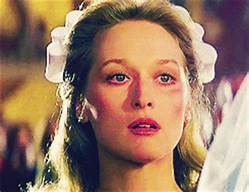 Meryl Streep in “The Deer Hunter”
Meryl Streep in “The Deer Hunter”It starts with the question, “Who are you?” You’re lying down, eyes closed, relaxed. Your friend asks you, “Are you your name?” Silently (or maybe with a nod) you answer, “No.”
Your friend says, “Release it.”
And you release your name. That’s not who you are.
The exercise continues through, “Are you the place where you live, i.e. a Texan, an Irishwoman?” and on through nationality, gender, age.
You release these too.
Are you your personal history? Your family? Your sexual orientation? Your traumas? Your joys? Your dreams?
No.
Release them.
Are you your body?
No.
Are you your religion?
No.
At each juncture, when you think deeply and answer with absolute honesty, you find yourself saying no. “No, I’m not this. No, I’m not that.”
You release each one.
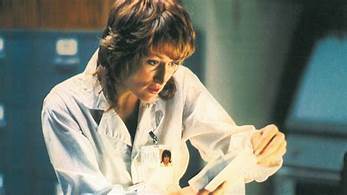 Meryl Streep in “Silkwood”
Meryl Streep in “Silkwood”Yet “you” remain.
Where do you wind up finally? For me, I was floating in space, without a body, without a name, without a country or a family. I wasn’t even an Earthling.
What was I?
What remained, for me, was a consciousness. That hadn’t altered. I was a consciousness that saw things through a very specific lens. My sense of humor remained. My curiosity remained. My specific, idiosyncratic appreciation of beauty and awareness and intellectual expression remained.
What form did that consciousness take?
For me, it was a vibration. I was a frequency. I could almost see it, like a wave on an oscilloscope.
 In “The Bridges of Madison County”
In “The Bridges of Madison County”That frequency was unique to me, as every other being’s frequency was unique to it.
Now, said my friend who was guiding me through this exercise, “You’re floating in space. Can you hear the cosmic Om? The sound vibration that undergirds all creation?”
I could.
“Okay,” he said. “Now make your vibration harmonize with that sound.”
That’s the voice. That’s the answer to “Who are you?”
An actress over the course of her career may play dozens of roles. In each she’ll be different. Meryl Streep as Linda in The Deer Hunter, as Karen Silkwood in Silkwood, as Francesca in The Bridges of Madison County, as Karen Blxen in Out of Africa. Each role is different, each “voice” is unique. Yet in each the actress remains the same, doesn’t she?
Ms. Streep is being true to something. But what? How can it be “true” if it changes from role to role (and even evolves as her chronological age advances?)
 In “Out of Africa”
In “Out of Africa”If we were viewing this from a Buddhist perspective, we might say that Meryl Streep the actress actually has no personal identity. Personal identity, we might declare, is an illusion. The actress is adapting role-to-role and assuming the personality of the character she is playing.
But that wouldn’t be true, would it? There IS an identity that is Meryl Streep, even Meryl-Streep-the-chameleon-actress who adapts to each new professional challenge.
A case could be made that those individuals who stand out in their professional or spiritual fields (and whom you and I can’t help but admire) are those who have found that vibration that is unique to them … and who operate out of it exclusively.
Think of a singer. A quarterback. A writer. The great ones sing and play and compose out of an epicenter, a consciousness, a point of view, don’t they? A unique epicenter and consciousness and point of view that is theirs and no one else’s.
Is that artifice?
The way Edith Piaf sings. Or Yo-Yo Ma plays. Or Bob Dylan writes.
I will make a yes/no case.
Yes, it’s artifice in that it has risen into awareness and the artist, recognizing it the way a hunter recognizes a bird on the wing, has seized upon it and made it his or her signature.
But no, it’s not artifice in the sense of being artificial. There was a moment, I would suggest, when that voice rose out of Edith Piaf like a cry out of a she-wolf. Without intention or artifice or contrivance.
I would venture further that that moment was one of agony and surrender and self-annihilation (in the best sense), perhaps heartbreaking, perhaps ecstatic. We’ll never know. Edith herself may not have known.
No one has said it better than Henry Miller:
The post What is “Real?” first appeared on Steven Pressfield.I didn’t dare to think of anything then except the “facts.” To get beneath the facts I would have had to be an artist, and one doesn’t become an artist overnight. First you have to be crushed, to have your conflicting points of view annihilated. You have to be wiped out as a human being in order to be born again an individual. You have to be carbonized and mineralized in order to work upwards from the last common denominator of the self. You have to get beyond pity in order to feel from the very roots of your being.
July 13, 2022
The River
The passage that follows is from a book I’m working on right now. I’m not sure the passage works for a Writing Wednesdays post, but what the hell, I like it and my instinct tells me to put it out there.
The passage is part of a section about a twenty-two month period in my late twenties when I lived by myself in a little house in Northern California and did nothing all day but read and write. I’ve alluded to this time in The War of Art and a couple of other books.
I lived on a street called River Road then. There was a real river (not a big one, but one with real water that really flowed) across the street from the house I lived in. Anyway, here’s the passage:
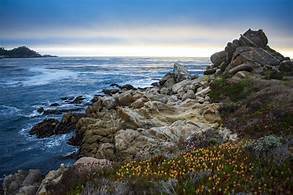 A postcard-type shot of the river, where it reached the sea. My section was a little less dramatic than this.
A postcard-type shot of the river, where it reached the sea. My section was a little less dramatic than this.The post The River first appeared on Steven Pressfield.
As I write this now, almost two generations have passed. Yet the weeks and months of that time remain vivid to me. Nothing in my life before or since has penetrated me like those two years. In our society we erect altars to love. Songs, movies, even TV commercials tell us love is the answer.
I don’t believe it.
I believe in a different kind of love. I can’t define it except to say that it has nothing to do with the flesh, nor is it particularly personal. The goddess is real. Her stream flows inside you and me like an underground river.
That river is our life, our real life.
During those two years I lived beside that river. Nothing came between me and it. Each morning I entered the river, and I didn’t come out until I was so exhausted I could no longer swim or stand.
No one had told me about this river. No teacher had instructed me on it. No mentor had pointed me in its direction. I had tried before to enter this river, but I could never find the opening. Not like this time. Not like now. Was I producing anything of value? Not yet. That would come, if it ever did, years and decades in the future. But I was in the river and the river was in me.
The price of entrance to the river is work. Work is the toll of admission. The river can’t turn you away as long as you’re willing to pay. Paul would tell me that, and Bart too, and what they said was true. If you’re willing to pay the freight, the river has to let you in. That’s the law.
July 6, 2022
The Willing Embrace of Chaos
What is the first virtue of the artist?
It is—and must be—an awareness of and acceptance of the primary reality of the field upon which she will work.
That reality is chaos.
“Nothing in war,” declared the great Israeli general, Moshe Dayan, “happens in a straight line.”
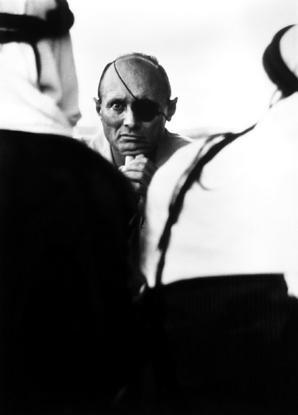 Moshe Dayan with Arab sheikhs, 1967
Moshe Dayan with Arab sheikhs, 1967Nothing in art or entrepreneurship happens in a straight line either.
The birth of anything—stars and galaxies as well as people and animals—takes place amid disorder, confusion, and chaos. That’s our novel, our nonprofit, our Korean vegan restaurant.
You are I must teach ourselves to be comfortable working in darkness and in crooked lines.
The post The Willing Embrace of Chaos first appeared on Steven Pressfield.June 29, 2022
“You have to be a studio”
I was doing a free rewrite a few years ago on the lot at Paramount when a producer friend spotted me on the bungalow’s porch and plopped down in the chair beside me. She asked me what I was working on beside this freebie.
I hesitated.
“That can’t happen,” she said at once.
 The gate at Paramount studios
The gate at Paramount studios“What do you mean?”
“You not being ready when someone asks that question. You have to have a slate.”
“A slate?”
“Look around,” my friend said, indicating the soundstages and production offices that extended in every direction. “Every studio has a slate. Fox, Disney, Warners…they’ve all got a lineup of pictures they’re making and more in the pipeline. Every producer on this lot has a slate, and every producer and actor and director on every other lot has a slate. I have a slate. You have to have one too.”
My friend was a serious player. She had had hits at two different studios and was in production on another picture at a third.
“Think about who we’re competing against in this town. It’s not just other writers. We’re competing with studios. We have to have the same professional attitude they have—about finances, about contingencies, about material.
“You’re a writer. At all times you have to have at least three finished scripts and half a dozen in the works. In a meeting, when a producer says, ‘Steve, what else have you got?’ you have to be able to rattle off four, five, six projects—and be able to pitch ’em all with full professionalism.”
My friend was late for a meeting; she had to hurry off. But what she said as she left is still burned into my brain.
The post “You have to be a studio” first appeared on Steven Pressfield.“Just because we’re ‘creative’ doesn’t mean we have permission to act like idiots. The reason writers are condescended to in this town and treated like children is because they act like children. Those days are over. We are entrepreneurs. We are in business. We’re competing against multi-billion-dollar enterprises, and we have to be just as professional as they are.”
June 22, 2022
Working for the Man
Question: what will you and I do differently when we exit the ranks of the officially employed and set out on our own as artists or entrepreneurs?
Answer: We’ll do exactly what we did before, only instead of Mister Charley telling us what to do, we’ll tell ourselves.
Instead of the Man setting the agenda, we’ll set it.
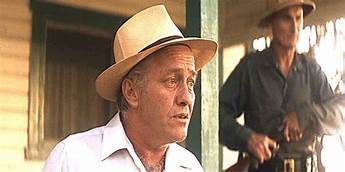 Strother Martin as “the Captain” in COOL HAND LUKE
Strother Martin as “the Captain” in COOL HAND LUKEWe decide what our goal is—and how we intend to reach it.
We decide how much we’re willing to sacrifice to reach that goal.
We decide how many hours we will work each day (our total, bank on it, will be much higher than it was when we worked at a mainstream job) and how many weeks and months we will labor per year.
We decide where we will work. We decide when. And with whom.
We decide what time we get up and what time we go to bed. We assign our own vacations and our own days off. (We also assign all-nighters and working weekends.)
We alone will be the arbiters of our success. We’ll set the terms ourselves. (They may be quite different from conventional measures of success.)
We’ll give ourselves a raise if we deserve it. And we’ll kick ourselves in the butt when we screw up.
We will be our own boss, our own mentor, our own cheerleader, and our own psychiatrist.
Can we make this mental shift? Can we flip that switch in our head? Can we go from working for the Man to being the Man?
If our goal is to be a writer or an artist or an entrepreneur, we can’t do it any other way.
The post Working for the Man first appeared on Steven Pressfield.June 15, 2022
The Code of the Entrepreneur
I’m borrowing (again) from my entrepreneurship guru, Dan Sullivan. Dan identifies a statement that every entrepreneur makes to him or herself—whether she does this consciously or not. It’s the entrepreneur’s code, the independent businessperson’s declaration of principle:
I will expect no remuneration until I have created value for someone else.
Let me repeat that:
I will expect no remuneration until I have created value for someone else.
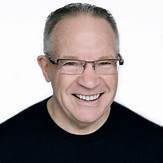 Dan Sullivan of Strategic Coach
Dan Sullivan of Strategic Coach“Create value” is a hard-boiled business term. There’s no art to it. No romance. But you and I as writers and dancers and actors and photographers live exactly by that dynamic—whether we realize it or not.
We write a book. It’s got to find readers. It’s got to sell. It has to “create value” for the person who lays out hard American greenbacks for the privilege of scanning through its pages. Otherwise, we’re not artists, we’re artistes. We’re living in a dream world.
We must remember always that art is a transaction. The viewer or reader or gallery-goer brings to the table something precious—her time and her attention. In return, you and I must deliver something—an image, a song, a story—worthy of our reader or viewer’s faith and expenditure.
Why do I cite this code? I do it to get our feet planted firmly on the ground. So that you and I as musicians and filmmakers and videogame designers can operate in the world as it really exists—and not in some “artistic” fantasy.
The post The Code of the Entrepreneur first appeared on Steven Pressfield.I will expect no remuneration until I have created value for someone else.
June 8, 2022
Going to the Gym in the Dark
It’s five in the morning and we’re on our way to the gym. This happens six days a week, rain or shine, Christmas, Fourth of July, your birthday. I hate it. Everybody does. We’d all rather be home in bed catching those lazybones Z’s. Why do it then? For me, it’s not because I imagine I’m going to be the next Mr. Universe.
It’s about the mental game.
 Mona Muresan at six in the morning, showing us how it’s done.
Mona Muresan at six in the morning, showing us how it’s done.Yes, the fitness and health aspects are important, even indispensable, to this ritual. But what this predawn expedition is really about for me is the Inner Game. I am preparing myself mentally and emotionally for the day’s work that will start for real in a couple of hours.
When you work out physically, you are doing four things that are superb rehearsals for creative work.
You’re doing something you don’t like.
You’re doing something that resists you.
You’re doing something that hurts.
You’re doing something you’re afraid of.
In the gym or on the track or the trail, we experience everyday moments of real physical fear. A weight we don’t think we can handle. A hill we’re not sure we can climb. Watch the faces of men and women at Gold’s or CrossFit or any other serious venue. See them going deep within, psyching themselves up to anticipate the level of effort and intensity they’re going to have to summon.
I’m not saying that Spartan-like physical training is the ticket for every artist or entrepreneur. You have to be a little crazy to sign up for this for any reason. But SOME form of self-discipline, some regimen that requires mental focus, some practice that involves visceral adversity can be a great way to kick-start the working day.
What you and I do as writers and dancers and actors and filmmakers is furious, serious stuff. You can’t do it coming straight off the couch. Can you run? Can you swim? Can you climb?
Do it.
That’s the artist’s way. That’s the mindset of the professional, the warrior, the independent operator.
The post Going to the Gym in the Dark first appeared on Steven Pressfield.June 1, 2022
The Muse tests us
The goddess tests you and me 24/7. She flies over and peers down on us. What she wants to see is that we are dedicated to the journey, to the process, that we are in it for the long haul and for keeps.
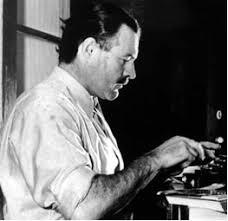 The Muse knows if we’ve been naughty or nice
The Muse knows if we’ve been naughty or niceWhat she doesn’t want to see is that we are attached to the real-world outcome of one specific project.
The Muse hates that because it shows that we have misapprehended the nature of her alliance with us and of our apprenticeship in her service.
“Keep working.”
The pro athlete who gets cut from his team, the ballerina who is let go by her dance company… both must go home and immediately begin training for their next job, even if they doubt they will ever find one.
The sent-down wide receiver must head over to the local college and recruit one of the young quarterbacks to work with him, alone and at night if necessary, throwing passes on the practice field, letting him run routes, helping him keep his technique sharp. The ballet dancer must sign up for class at once, continue her strength training, keep up her barre work.
For you and me, finishing Book #1 (or #21) means only plunging in immediately on #2 or #22.
We have to.
That’s the goddess’ law.
The post The Muse tests us first appeared on Steven Pressfield.“Keep working.”
May 25, 2022
Write the Big Moment Big
[In honor of The Godfather’s 50th anniversary, here’s one of my favorite Top Ten posts of the past.]
I have a friend who runs a very successful literary agency in Los Angeles. She represents screenwriters. I asked her once, “Is there any single mistake your writers make, not in business or marketing, but in the writing itself?”
She replied without hesitation,
“When they come to the Big Scene, they chicken out.”
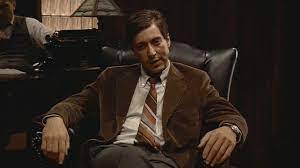 “Then I’ll kill them both.”
“Then I’ll kill them both.”I asked her to elaborate.
“Think about the ‘She’s my sister, she’s my daughter’ scene in Chinatown. Or the moment in The Godfather when Michael says, ‘If Clemenza can figure a way to have a weapon planted for me … then I’ll kill them both.” Those are Big Moments. Both are central to their dramas. And in each one, the writers and directors held nothing back. They didn’t under-write. They didn’t underplay. And both those moments are immortal.”
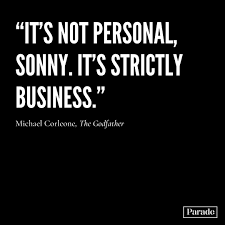
My friend said that her writers (and by extension, of course, all of us) tend to be risk-averse in their stories’ Big Moments.
“Partly I think it’s because they’ve been told that subtext is more powerful than text. Or they’re afraid that if they go balls-out for emotion and the moment doesn’t work, they’ll look foolish. So they deliberately under-write. They back off from having Carmela scream at Tony, ‘I was in love with Furio!’ Or from Tony slamming his fist through the wall two inches from Carmela’s face.”
My friend said she routinely has to force her writers to revisit their Big Moments and be brave enough to take the risk of really going for it.
I confess when I heard that, my blood ran a little cold.
I thought, “Am I doing that?”
And of course I am. And for the same reasons my friend cited.
The post Write the Big Moment Big first appeared on Steven Pressfield.Memo to self: Don’t chicken out next time. Write the Big Moment big.



